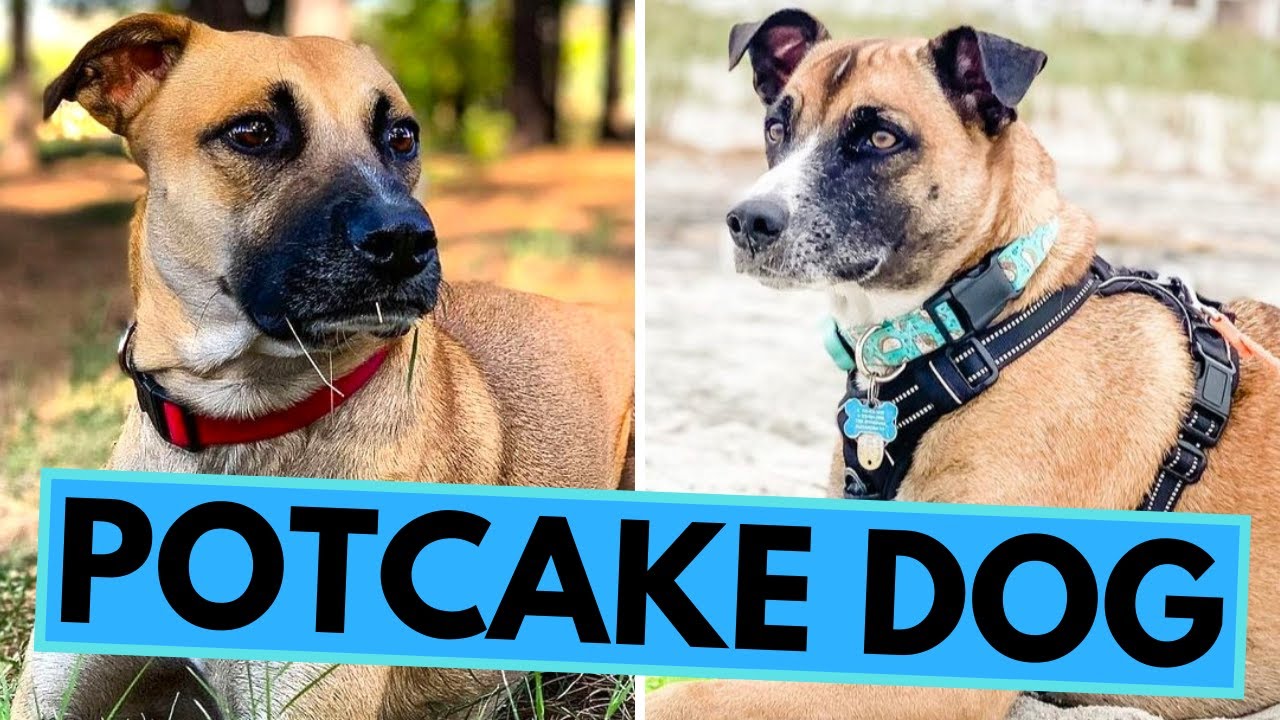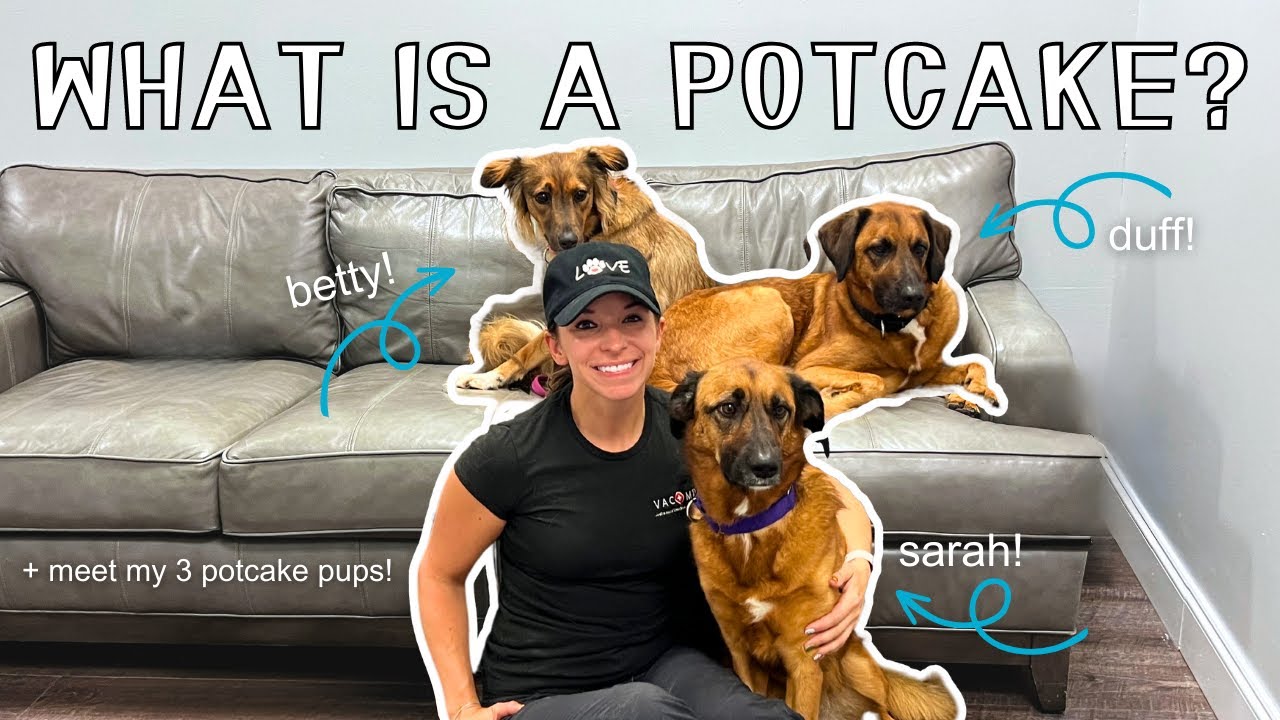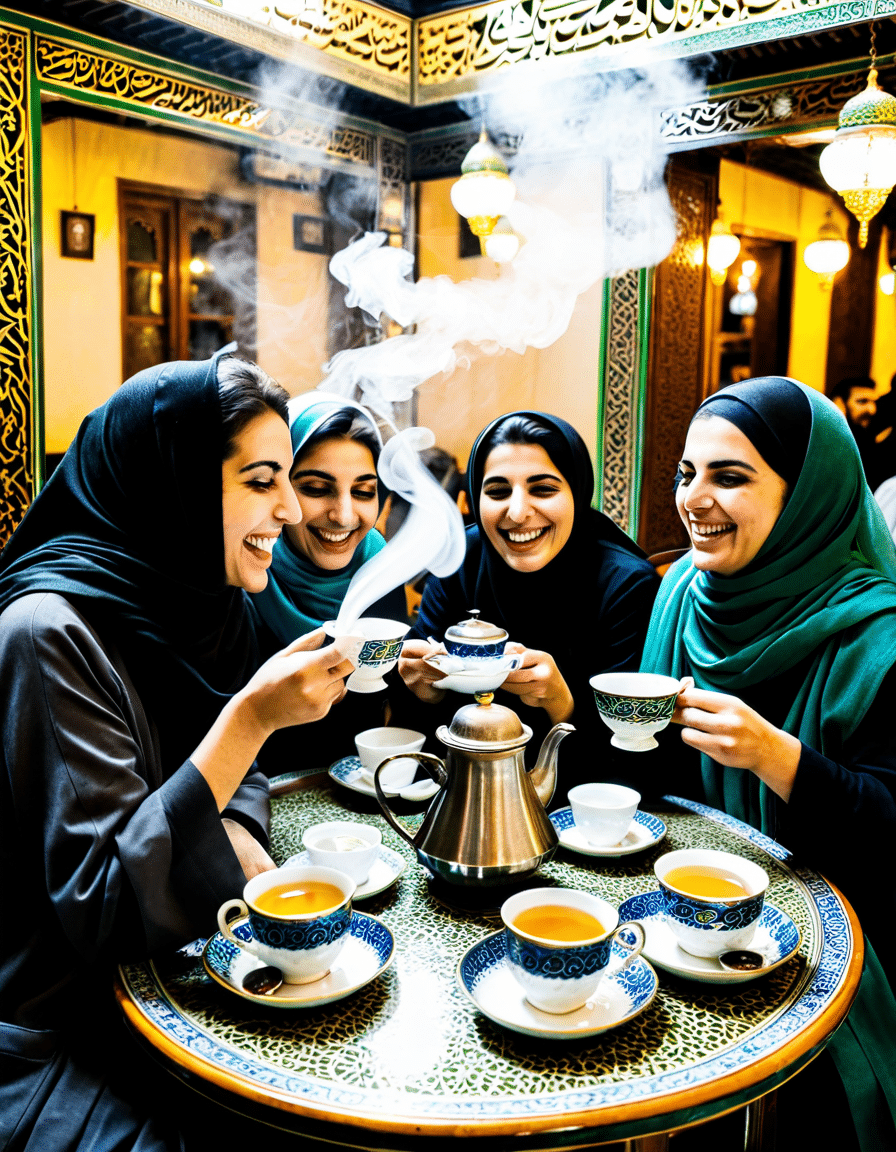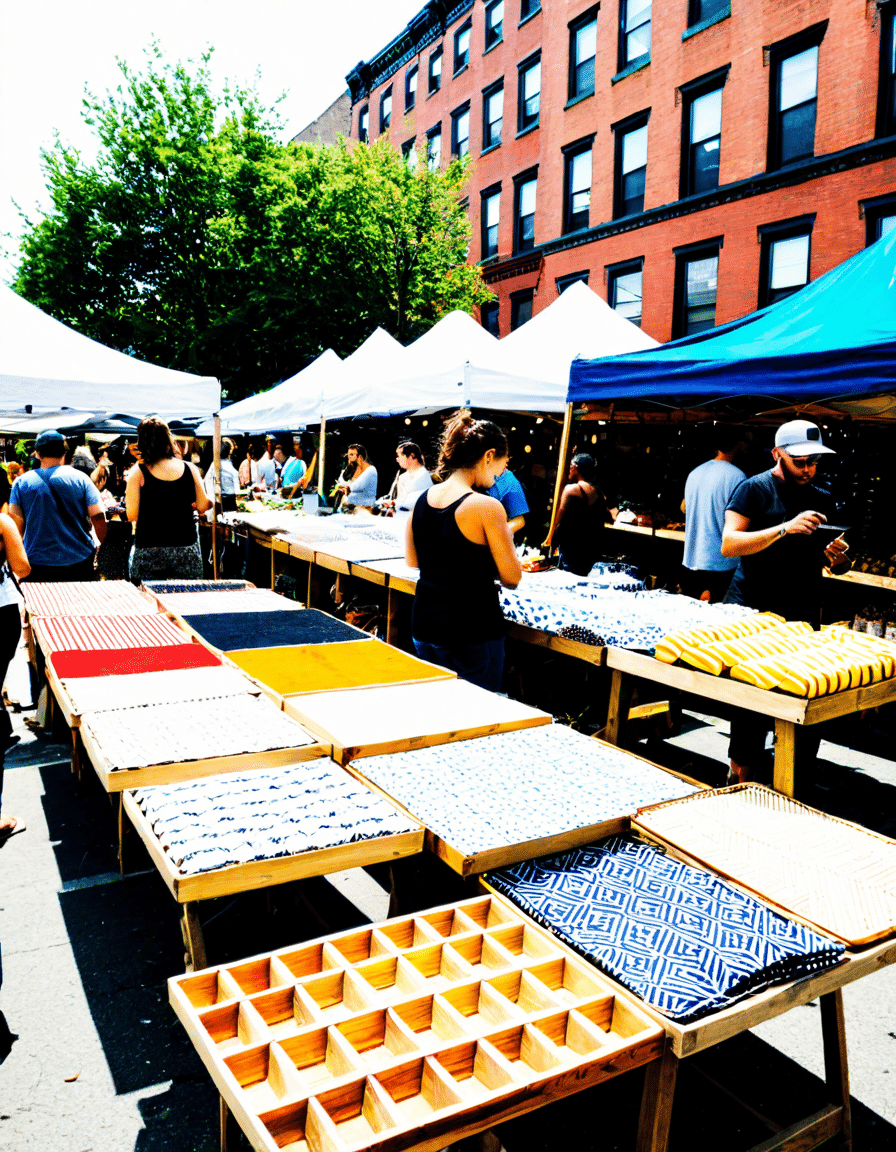Tucked away in the cerulean embrace of the Caribbean Sea lies a secret kept not in the sands or the waters, but in the hearts and homes of the islands’ residents: the Potcake dog. These loyal canine companions, with a heritage as colorful and diverse as the islands themselves, are the unsung heroes of their tropical paradise.

The Unique Origins of the Potcake Dog
The Potcake dog’s story is one inked into the very fabric of the Caribbean. Their lineage, a tapestry woven from strands of various breeds brought over centuries, speaks to their resilience and adaptability. These dogs may resemble a pariah dog or show a resemblance to mastiffs, hounds, spaniels, terriers, or retrievers, depending on their island home.
The etymology of “Potcake” is a term drenched in warmth and comfort, originating from the island tradition of feeding stray dogs the caked remnants of rice or macaroni that clung to the bottom of cooking pots. This practice not only named the breed but highlighted the locals’ love and acceptance of these dogs.
Understanding the Potcake’s lineage is key to grasping their extraordinary ability to survive and thrive. Just like the pot from which they received their name, the Potcake dog is a blend of the various flavors that have touched the islands’ shores, giving them an incredibly hardy constitution and a fiercely loyal temperament.

Understanding the Potcake Dog’s Distinctive Traits
Characterizing a Potcake can be like trying to capture the essence of the sea—each is unique, but they all carry a ubiquitous echo of the islands. Physically, Potcakes often have smooth coats, long faces, pointed cocked ears, and a look that is insatiably endearing.
Potcake temperament and behavior are akin to reading a heartfelt letter from an old friend—an exuberance punctuated by bursts of running around, barking, and a tendency to express joy through play-bowing and standing on their haunches. Adaptable spirits, they take life’s challenges in stride, whether prowling urban streets or sprawling across a sun-drenched beach.
Their ability to adapt to various environments is almost legendary. This trait not only serves them well on the islands but also when they transition to homes abroad, which, as we shall see later, is becoming increasingly common.

| Aspect | Description |
|---|---|
| Origin | The Caribbean – specifically The Bahamas and Turks & Caicos Islands |
| Name Derivation | From leftover rice or macaroni mixture called “potcake” traditionally fed to strays |
| Breed Recognition | Recognized by The Bahamas Kennel Club |
| Typical Traits | Intelligent, loyal, calm, resilient, resourceful, strong, determined, brave, loving |
| Physical Appearance | Smooth coat, long face, pointed and cocked ears. Variable appearance including traits similar to shepherd, mastiffs, hounds, spaniels, terriers, or retrievers. Floppy ears, lengthy snout, almond-shaped eyes |
| Cost/Adoption Fee | No charge, but donations appreciated |
| Diet | Hardy stomachs, capable of eating varied diet including leftovers and scavenged food |
| Behavior | Excitable, enjoys walks, car rides, play. Potcakes tend to wander if unsupervised |
| Shedding | Yes, with the amount varying due to coat diversity. Typically short-coated potcakes are regular shedders |
| Ideal Home Environment | Adaptable to various settings but requires proper confinement and supervision |
| Ancestry | Mixed-breed; Labrador, German Shepherd, and Fox Terrier among possible ancestors in Turks and Caicos |
| Special Characteristics | Due to their adaptive evolution, often exhibit hardiness and independence found in street dogs |
Cultural Significance of Potcake Dogs in the Caribbean
Within the vibrant communities stretching from The Bahamas to Turks & Caicos Islands, Potcakes are more than pets—they are guardians of childhood memories, companions through days both sunny and stormy, and central figures in the tapestries of daily life.
Their role in households is matched only by their place in Caribbean folklore and storytelling, where tales of their loyalty and bravery are recounted with the same enthusiasm reserved for legendary heroes.
This cultural resonance has engendered significant conservation efforts, and Potcakes are now revered as icons. Their welfare and preservation have rallied support not just within the islands but from international communities—bonded by a shared realization of the special place these dogs hold in the heart of the Caribbean.

The Rescue and Adoption Movement: Potcake Dogs Finding Forever Homes
Organizations like Potcake Place and the Royal Potcake Rescue have arisen as guardians for these intrepid dogs, spearheading efforts to find them loving homes.
Personal stories of Potcake adoptions often read like epic novels, filled with accounts of long-distance travels and lives forever altered. Adopters speak of the sheer joy these dogs bring, as well as their uncanny ability to adjust to new climates and cultures.
The challenges of adoption are transparent—the commitment to provide a stable home, the need to educate oneself on Potcake-specific quirks, and the occasional struggle with their wandering tendencies. Yet the rewards—a happy, tail-wagging companion—are touted by satisfied Potcake owners as truly immeasurable.

Health and Care Considerations for Potcake Dogs
Caring for a Potcake is both a duty and a joy, with vigilance needed to stay ahead of potential health issues. While relatively hardy, Potcakes may still encounter common canine ailments, and proactive care is always the best medicine.
Nutritional needs are peculiarly straightforward for Potcakes. Their robust constitution means they can digest a broader range of foods, though a well-balanced diet is always recommended.
Whether nosing through the underbrush or leaping after a thrown toy, exercise remains a pivotal aspect of Potcake care. Likewise, grooming, much like their shedding, can vary, yet a consistent routine is a keystone for their well-being.
The Role of Potcake Dogs in Therapy and Service Work
There’s a certain magic in the way Potcakes seem to melt away troubles with a nuzzle or a wag. It’s no wonder they are finding their way into therapeutic settings where their calming presence can bring solace and joy to those in need.
The story of a certain Potcake named Lola Rose, whose intuitive nature allowed her to bridge the gap between troubled youths and a brighter future, resonates with many. The potential for Potcakes in service work is being recognized, with organizations beginning to explore their capabilities as assistance animals.
Fostering a Sustainable Environment for Potcakes
It’s not all sandy beaches and sunset strolls. A sustainable future for Potcakes involves responsible breeding, population management, and a concerted effort from local governments.
Tourist interactions also necessitate a careful balance—encouraging affection without inadvertently promoting negligence or abandonment. As the dogs step paw outside of their native lands, the call for global stewardship becomes ever more poignant.
Beyond the Beach: The Global Presence of Potcake Dogs
From sandy shores to snow-topped pines, Potcake dogs have found new homes across North America and Europe. Their tales of transition are stories of hope, acceptance, and the remarkable adaptability of these island ambassadors.
As Potcakes are woven into new cultural narratives, their impact on global perceptions expands. Each success story helps to elevate the breed’s popularity worldwide, calling more hearts towards the islands they call home.
Conclusion: Preserving the Legacy of the Caribbean’s Canine Ambassador
Preserving the legacy of Potcakes must go beyond mere admiration. It requires international awareness, informed tourism, and support for the islands’ ongoing efforts.
It’s up to us to uphold the enduring bond these loyal dogs offer and ensure that their storied presence in the Caribbean remains a vibrant chapter for generations to come. In fostering this, we keep alive the spirit of the Potcake dog—the Caribbean’s beloved and loyal companion.
Uncovering the Charm of the Potcake Dog
Let’s dig into the delightful world of the Potcake Dog, a breed that’s as unique as its name. Speaking of names, it seems like Tom Kim, an emerging professional golfer, might appreciate the tenacious nature of these Caribbean canines. Just like Tom’s surprising ascent in the golfing world, the Potcake Dog has surged in popularity, finding its way into the hearts of dog lovers everywhere.
Now, you might be wondering, “What on earth is a Potcake Dog?” Well, pull up a chair and imagine strolling through the sandy beaches of the Bahamas, where you might stumble upon these adorable pooches. Their moniker is as quirky as the dish it comes from – potcake – which is the term for the caked remains of the rice and pea mixture that locals traditionally fed these strays. These dogs are the epitome of making the best out of a sticky situation; quite a lesson in resilience, wouldn’t you say? It’s akin to figuring out which is the best plant based protein powder for your fitness routine; you might need to sift through the fluff to discover the real treasure.
A Potpourri of Potcake Trivia
Oddly enough, Potcake Dogs somewhat resemble a pair of classic, shop white Sneakers – they may start pristine and pure, but life’s adventures tend to add character and color, showcasing a story that’s unique to each individual. These pups, much like a good sneaker, are reliable, sturdy, and adapt to the path they’re on, whether it be a sun-drenched trail on a Caribbean island or the bustling streets of Nassau.
In a twist of adorable irony, Potcake Dogs have achieved an almost celebrity-like status. Yet, not even a surprise photo of Meghan Markle nude could eclipse the growing adoration for these resilient canines. Their fame spreads from tourist anecdotes to social media, where they parade their doe-eyed looks and scruffy charm. Just as the eccentric Haganezuka crafts formidable swords in the popular series Demon Slayer, these dogs have carved out a formidable presence in their tropical paradise.
So, the next time you catch a movie at Pooler Cinemas, consider the underdog story of the Potcake Dog and how they’ve risen to fame from humble beginnings. And if you find yourself brushing up on the unsettling tale of Eddie Ray routh, try to remember that every story has its shades of gray – much like the varied coats of these Potcake pups, whose resilience and loyalty shine as a beacon of hope in their communities.

What breeds make up a potcake dog?
What breeds make up a potcake dog?
Oh boy, answering what breeds make up a Potcake dog is like unraveling a mutt’s family tree at a doggy reunion! In a nutshell, these beach-bum pups are a hodgepodge of mainly Labrador, German Shepherd, and Fox Terrier, but don’t be surprised if you spot traits of mastiffs, hounds, spaniels, terriers, or retrievers. Every island’s Potcake might look a bit different, making them as unique as a snowflake in a tropical breeze.
Why is it called a potcake dog?
Why is it called a potcake dog?
So, why the quirky name “potcake” dog, you ask? Well, it’s simple and kinda sweet – these tail-wagging companions got their moniker from the scrumptious leftovers of rice or macaroni that locals would scrape from the bottom of their cooking pots. These dogs didn’t just get the last bite; they snatched up a nickname that stuck!
How much do Potcake dogs cost?
How much do Potcake dogs cost?
Thinking of snagging a Potcake pup? Good news—they won’t break the bank! There’s no price tag on these furry friends, though donations are super welcome to help cover their vaccines and keep the rescue mission going strong. So, you can bring one home without spending a dime, but hey, a little generosity goes a long way!
Do potcakes bark a lot?
Do potcakes bark a lot?
Potcakes and barking? Yep, they’re chatterboxes of the dog world, full of beans and not shy about vocalizing it! With a bark here and a play-bow there, they’re exuberant creatures that love to express themselves. Just be prepared for a fair share of woofs, especially when they’re over the moon with excitement.
Do potcakes like to cuddle?
Do potcakes like to cuddle?
As for cuddling, potcakes are all in! While they’re known for being four-legged bundles of energy, don’t underestimate their love for a good snuggle session. After a long day of tail-wagging adventures, they’re down to cozy up and bask in the love from their humans.
Are Potcake dogs friendly?
Are Potcake dogs friendly?
Are Potcakes friendly? You betcha! These island pups are as social as they come—think of them as the life of the paw-ty! They’re loving, loyal, and ready to greet you with a wagging tail and a wet nose. Just give them a chance, and they’ll be your BFF in no time.
Are potcakes aggressive?
Are potcakes aggressive?
Hmm, are Potcakes aggressive? Generally speaking, nope. They tend to be as chill as an island breeze, but hey, every dog is an individual. As with any pup, proper training and socialization are key to keeping things cool and calm. But overall, Potcakes are more about spreading love than ruffling feathers.
Are potcakes easy to train?
Are potcakes easy to train?
You’re probably wondering if Potcakes are a walk in the park to train. Well, with their smarts and loyalty, they can catch on to new tricks pretty quickly. That said, don’t forget that consistency and patience are your BFFs here. Train ’em right, and you’ll be bragging about your genius Potcake in no time.
Are potcakes protective?
Are potcakes protective?
Speaking of protective, Potcakes have got yo’ back! Their street-savvy origins mean they’re naturally on the lookout and ready to stand by their humans. While they’re loving to their families, they won’t hesitate to sound the alarm if they catch a whiff of anything fishy.
What dog is $10,000 dollars?
What dog is $10,000 dollars?
Coughing up $10,000 for a dog? That’s got to be one fancy pooch! High rollers often fork out that kind of dough for breeds like the Tibetan Mastiff. With their regal demeanor and plush coats, these canine kings can demand a royal ransom. But remember, a dog’s true value? Priceless!
What dog cost $400 dollars?
What dog cost $400 dollars?
Looking for a four-legged friend for about $400? That could snag you a variety of adorable pups, especially if you’re browsing a shelter or a rescue group. Many mixed-breeds or even some purebreds waiting for a forever home come with an adoption fee in that ballpark. So start your search—and maybe your next best friend won’t cost an arm and a pup!
How can you tell if a dog is Potcake?
How can you tell if a dog is Potcake?
You’re playing the “Is that a Potcake?” game, eh? Keep your eyes peeled for those signature traits like floppy ears, a lengthy snout, and soulful almond-shaped eyes. Remember, though, no two are cookie-cutter alike thanks to their mix-n-match heritage. Spot one, and you’ve just met an islander out of the ordinary!
What do Potcake dogs eat?
What do Potcake dogs eat?
Potcakes aren’t fussy eaters; they’re the survivalists of the canine buffet! These pups thrive on a smorgasbord of foods that would send most dogs running for the hills. Though they’re not garbage guts, their cast-iron stomachs handle a variety that would make less hardy hounds green with envy.
What is the world’s most barking dog?
What is the world’s most barking dog?
If we’re talking about the world’s champion barkers, Beagles top the list. These merry little hound dogs can yap, yowl, and howl with the best of them, making them the talkative types of doggy town. Expect a canine concerto if a Beagle’s in your neighborhood!
What breed of dog rarely barks?
What breed of dog rarely barks?
If peace and quiet is your jam, the Basenji’s your man—or dog, that is. Hailed as the “barkless dog,” these dudes basically took a vow of silence in the barking department. But watch out, they still have ways of expressing themselves, from chortles to yodels. Silent but oh-so-expressive!






















